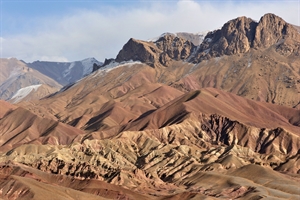1. Avoid insect bites
It is almost impossible to avoid insect bites and stings if you are out of doors. In some parts of the world insects and mosquitoes carry some serious and even fatal diseases. Without adequate precautions, you may be exposing yourself to illnesses such as chikungunya, dengue fever, malaria, Japanese encephalitis, tick-borne encephalitis and yellow fever. Some of these are not preventable by chemoprophylaxis or by vaccines – and in any case these do not provide complete protection. You should pay close attention to the advice on insect bite prevention issued by the Government of Canada.
2. Keep clean
During a backcountry camping trip you probably will not find many amenities such as washing facilities. Poor hygiene puts you at risk of GI illnesses, so think about how you will keep clean, how you will deal with waste and how you will purify water for drinking.
3. Insurance
A wilderness rescue is incredibly expensive, particularly if you have to be airlifted out. Add any medical bills to that and the total can run into thousands of dollars. Speak with your travel insurer before you boldly go to make sure that you are fully covered for your expedition.
4. Slow down
A twisted ankle in Calgary is an inconvenience, but a twisted ankle in the Andes when walking is the only way out could be a death sentence. Try not to rush, and avoid undue risks. A trekking expedition is not the time or the place to test the limits of your abilities. Be honest about your capabilities and your limits and think carefully about your decisions.
5. Know about altitude sickness
Altitude sickness can affect travellers from about 2,400m, although there are no hard and fast rules and no way of predicting who will be affected. Anyone trekking or hiking at altitude should know the symptoms of altitude sickness, which are listed on My Health Alberta. The symptoms will pass if you descend or acclimatize; but if you are vulnerable to altitude sickness you may be at risk from the life-threatening high altitude cerebral oedema (HACE), a swelling of the brain caused by lack of oxygen.
There is medication available to treat altitude sickness, but it is not a substitute for acclimatisation or descent. Ask your travel health advisor for details. Altitude may also affect existing conditions – so make sure you mention these during your appointment.
6. Medical kit for adventure travellers
For backcountry travel a good medical kit is crucial. It means you have everything you need in case of a medical emergency. Include a sterile set for protection against blood-borne diseases and to avoid putting pressure on local resources.
7. Get vaccinated to protect your health in remote areas
Six to eight weeks before you leave, make an appointment with a travel health adviser and tell them about your travel plans. They may suggest shots such as hepatitis A and typhoid, which will protect you from a couple of unpleasant GI illnesses. They can also help you out with malaria prophylaxis and shots against rabies, yellow fever, tick-borne encephalitis and Japanese encephalitis.
If you’re heading for the back country, make your first stop a branch of Canadian Travel Clinics. We offer travel vaccinations in Calgary, Edmonton, Fort McMurray, Medicine Hat, Okotoks and Red Deer. And If your travel plans are complex, make sure you take full advantage of our extended appointments.

